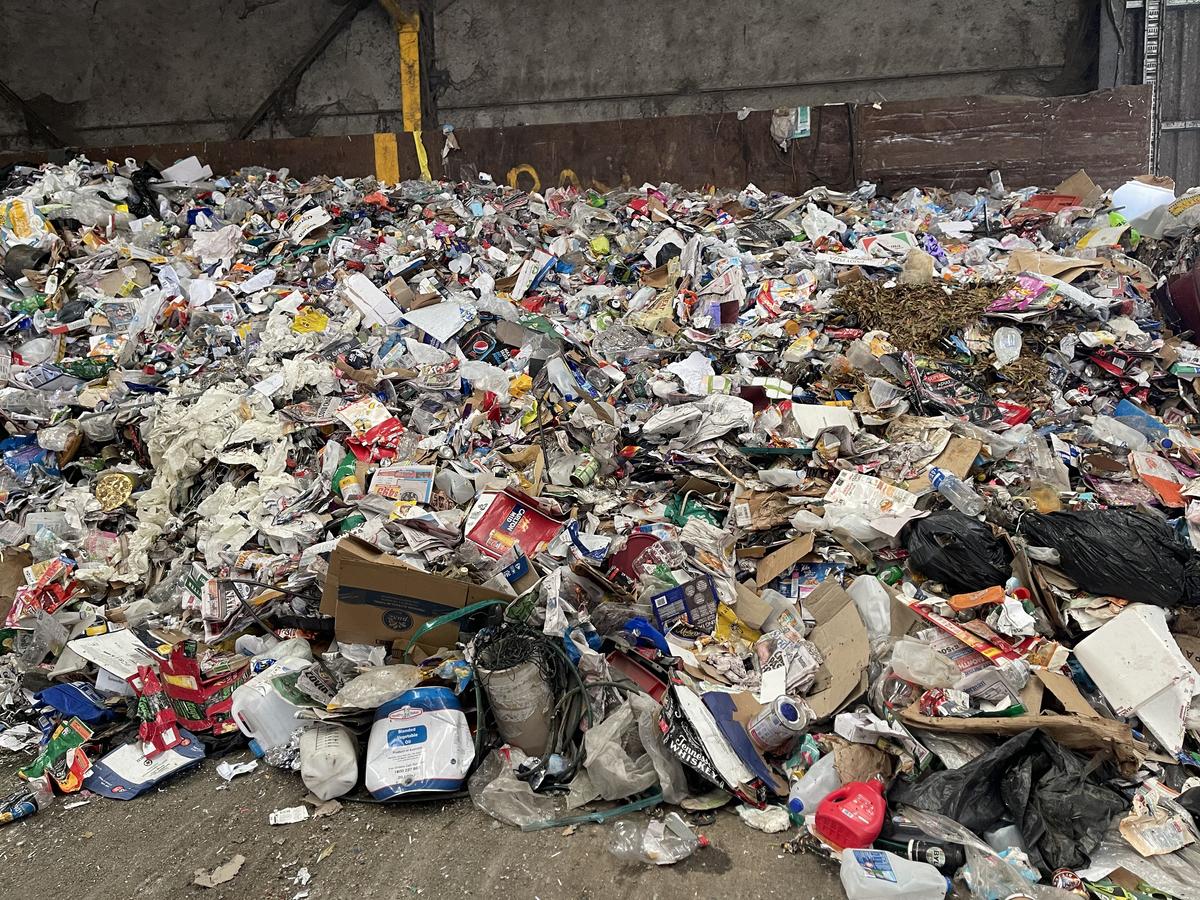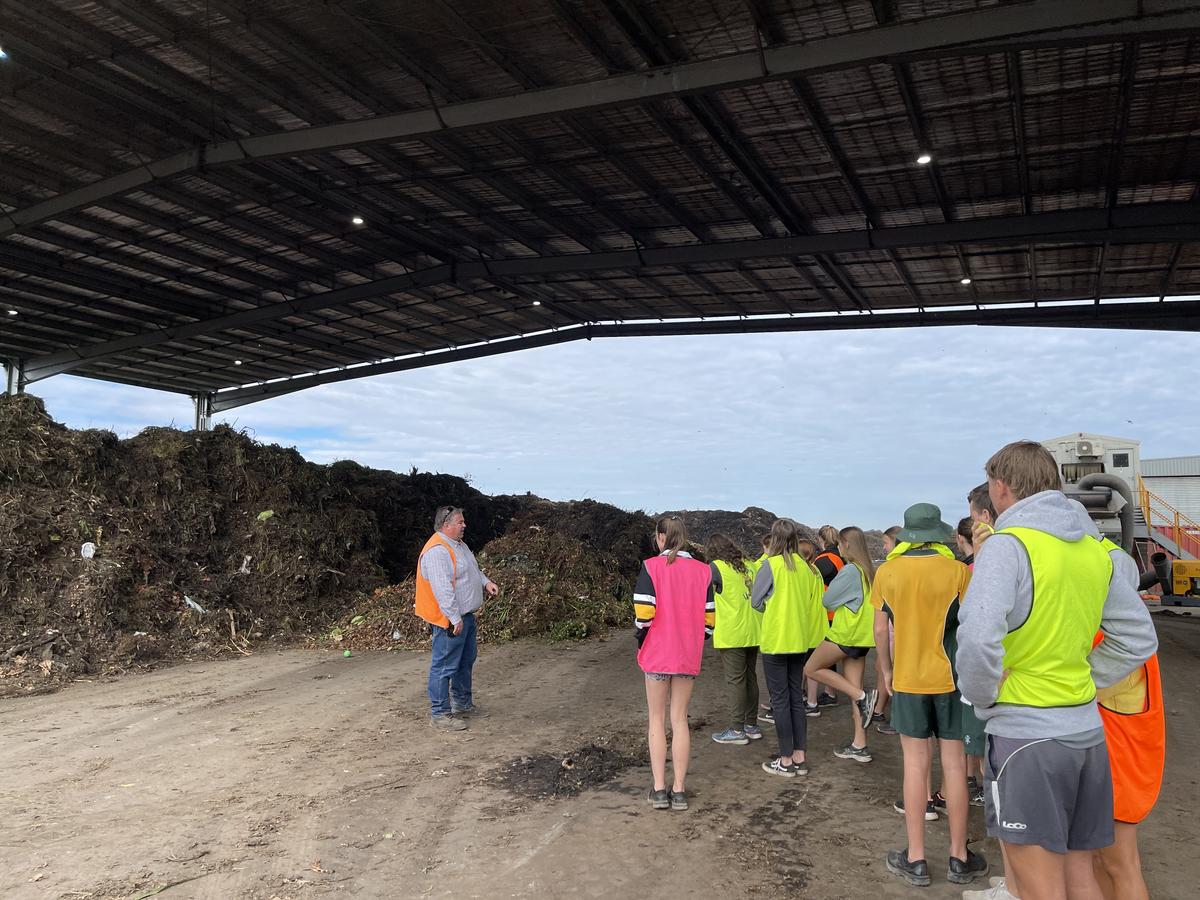Student News - Year 9 Geography Food Security Excursion

On 7 May, Year 9 Geography Food Security class had the enriching opportunity to further our learning into Food Security for the future. We looked at many ways we can reduce our wastage and how our local region is working toward achieving this.
Our first stop was Veolia’s Materials Recovery Facility (MRF) in Echuca. This facility accepts and sorts materials from our yellow-lidded kerbside recycling bin for Campaspe residents as well as: Murray River Council, Gannawarra Shire, Loddon Shire, Mount Alexander Shire and the Moira Shire. The facility receives and processes approximately 205 tonnes of recycling each week. The main contamination items are: clothing, blankets, electric blankets, coat hangers, garden hoses, electrical cords, nappies, bagged rubbish bags, dead animals, plastic bags and sealed bags of recyclable items. Contamination causes issues in regards to OH&S risks for the staff that work at this facility and can also cause the sorting machines to break down and need to be fixed (for example, garden hoses can wrap around the machine parts).
Some of these items, if in good condition, can be recycled for free at Council’s Resource Recovery Centres (that is, clothing and blankets in good condition, electrical cords and plastic bags). It was interesting to learn that recyclables in plastic bags cannot be recycled as items need to be loose to be sorted in the machines at this facility. Anything in plastic bags will go to landfill and miss the chance of being recovered. More information can be found on Veolia’s website: https://www.veolia.com/anz/echuca-mrf-vic.
Our second stop was Council’s Resource Recovery Centre, Echuca. We learned that many items can be taken for FREE to this centre including:
Co-mingled recycling (plastic, glass, aluminium, steel containers/bottles and jars) Cardboard and paper
Clothing
E-Waste (computers, printers, etc)
Fluorescent light tubes
Batteries (car and household)
Mobile phones
Motor oil
Paint tins (empty)
Scrap metal
Soft plastics.
Charges for some recyclables are for transport and/or processing costs. It was interesting to learn that garden organics are mulched by a contractor and can be picked up for free by residents during weekly opening hours.
More information on Council’s Echuca Resource Recovery Centre can be found on the website: https://www.campaspe.vic.gov.au/Our-services/Waste-recycling
Our last stop was Biomix in Carag Carag near Stanhope. Biomix was established in 2012 and is one of the largest Australian-owned compost providers in Victoria. Using a combination of enclosed vessel composting and open windrow maturation they produce a high quality mature compost product.
The facility accepts food and garden waste from both regional and metro councils in Victoria and processes around 100,000 tonnes of food and garden waste into compost which meet Australian Standards (AS4454) annually.
The main contamination item again is plastic bags. We learned that no degradable, biodegradable or ‘plant-based’ bags can be put into the green bin as these also contain plastic! Only compostable bags with the seedling symbol can be used for food scraps. Biomix allowed our class to gain a positive future outlook into our study of Food Security, as Biomix focuses on developing solutions for the agricultural markets which can improve soil health, reduce water use and increase plant yield. It also provides compost products for use in the home garden.
More information on Biomix can be found on their website: https://www.biomix.com.au/




